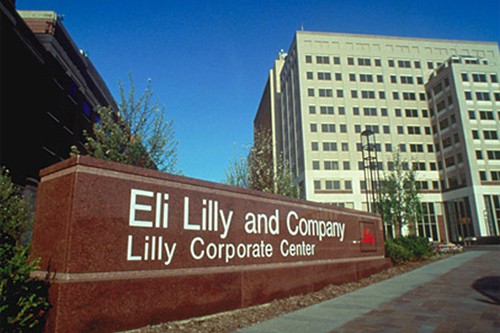
Eli Lilly and Incyte’s hopes of bringing the second JAK inhibitor to the US market for rheumatoid arthritis have been dealt a major blow by the FDA.
Despite the approval of Olumiant (baricitinib) in the EU in February, the FDA – which had already imposed a three-month extension to its review – said it is still unhappy with the Lilly/Incyte drug’s safety profile and dosing data, and needs more clinical information.
Lilly and Incyte were pushing to bring the first direct competitor to Pfizer’s Xeljanz (tofacitinib) in the US, which remains the only JAK inhibitor FDA-approved for rheumatoid arthritis getting a green light in 2012.
Xeljanz is approaching blockbuster status – bringing in $927m last year – but has failed to meet initial sales projections and Lilly and Incyte had hoped Olumiant could leapfrog the leader. Now it risks being caught up by other companies developing JAK inhibitors for arthritis, notably Gilead Sciences with filgotinib and AbbVie with ABT-494.
Safety concerns have meant Xeljanz is typically reserved as a later-line therapy after injectable biologics such as AbbVie’s Humira (adalimumab) in the US. Olumiant has outperformed Humira in a comparative trial and analysts have suggested it could eventually overtake Pfizer’s drug and make $2bn or more in sales at peak.
In a statement Lilly and Incyte said they “disagree with the agency’s conclusions”, adding that the timing of a resubmission “will be based on further discussions with the FDA”. Analysts at Leerink said they expected a US approval to be delayed by “approximately one year”.
The two companies are staying tight-lipped on the specific reasons for the rejection, but analysts at EvercoreISI have suggested it may be related to the safety of baricitinib at higher doses, something that was also an issue for Xeljanz. Ultimately the FDA approved Pfizer’s drug at a 5mg twice-daily dose only, saying the benefits of the higher 10mg dose did not outweigh its risks.
If the agency takes the same stance with Lilly and Incyte’s drug, which was tested at 2mg and 4mg once-daily, some of its competitive edge could be lost as the improvement over Humira demonstrated at the higher dose.
The news broke on Friday which was a holiday in the US, but both stocks went on the slide yesterday as investors returned from their long weekend.
Lilly said that despite the setback it is reaffirming both its financial guidance for 2017 as well as its mid-term guidance for the remainder of this decade.




